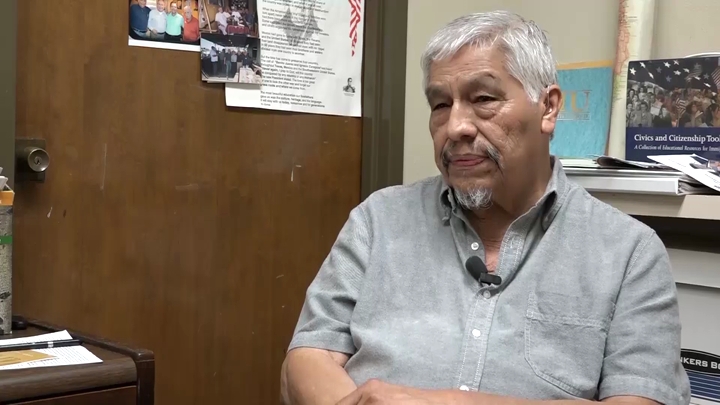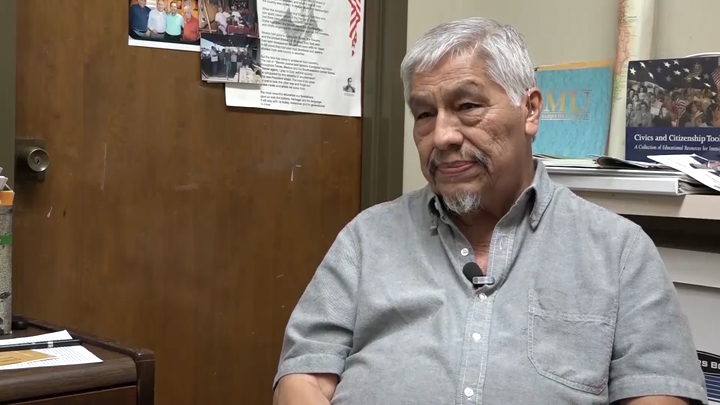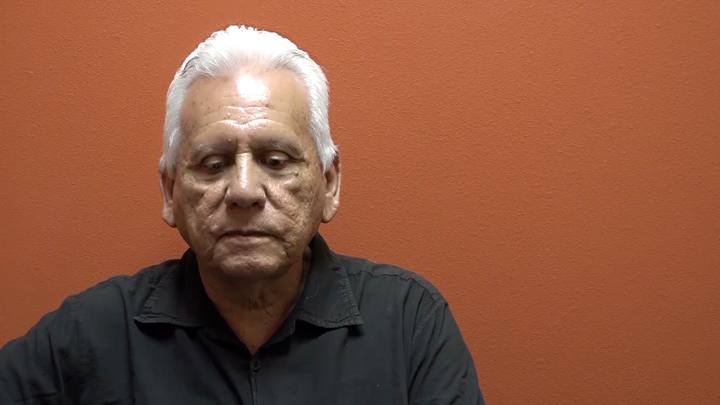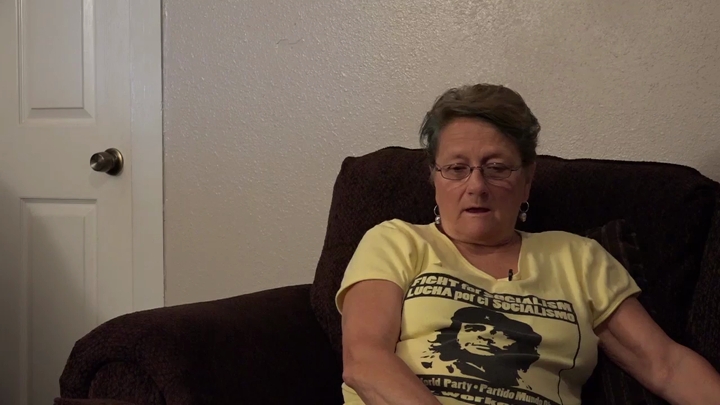Montejano / High School Experiences
sign up or sign in to add/edit transcript
Montejano: And She had several run-ins with those nuns, I know she did. I remember some of those run-ins. I was not a very good student. They remember me to this day, they remember me. What can I say? Arionus: How did your mom feel about you being punished for speaking Spanish? Montejano: She was upset. You know my grandfather, he father, did not want us to learn English. He just said, “You’re not coming into my house speaking English. You speak Spanish in here.” So, yeah. He was really strict on that. Sis he know how to speak English? [Asks her own questions.] Yes, he knew how to speak English. He knew how to read, sign his name, he knew all this stuff. You know, he just did not wat- “I don’t want that language in my house.” Arionus: Why do you think that was? Montejano: I do not know, preservation? Self- preservation. It was anger also. And I- he went to World War I and experienced a lot of discrimination, so it just came down. You, know. Arionus: Let’s talk about your high school years. Did you also go to a parochial school? Montejano: Well, yes. The one year I went to public school, I kind of got kicked out. Believe it or not- for playing hooky. They caught me [laughs]. Arionus: What high school was that? Montejano: It was Kennedy, John Kennedy High. It was a relatively new high school. Pretty modern. You know, I exceeded- let’s put it that way- the limit of absences. Me and one of the other activists- Domingo Bueno (?) and his girlfriend at the time, his wife now, Maria Louisa , Boo. We use to call her Boo Boo. He used to drive. We use to go to Medina Lake and just hang out there and go fishing. We just- we were not do anything like stealing or anything like that. We were just being teenagers- wayward teenagers. And let me tell you, and this is pretty bad, we use to sneak out right under our teachers noses because our classroom was toward the back. Towards the parking lot. We had a teacher that was very cross-eyed, and we sat up front and she could not see us. We would just get up and walk out on her. I think one time she realized we were not there [laughs]. Anyway, we – that sounds horrible I know. So, they caught us at Medina. And then the counselor went and talked to my mom and dad and said that I could go to Edgewood High School. But, my father said no and he would send me back to Catholic school. Arionus: Why didn’t your father want to send you to Edgewood? Montejano: Because Edgewood was a bad school. That was pretty bad. Arionus: What do you mean by bad school? Montejano: I mean not only were the school was poorly run but it was a subpar education. Let’s put it that way. So, they put me back at Little Flower. I graduated from Little Flower High School. The high school does not exist but the school still does. My picture is still there. That is Little Flower right there in the office on Zamora and Culebra. Arionus: What year did you graduate? Montejano: ’68, 1968. Arionus: Is that the same year you went into college? Montejano: Yeah, I went that fall. Arionus: Yeah, the reason I ask is because 1968, the year you graduate was a pretty big year in terms of student walkouts at Edgewood and student protests at Lenier. Montejano: Lenier High School. Yeah, we were involved in that too. That was in ’69 when the walkout took place. By that time, I had an internship at Guadalupe Community Center under Joe Bernal. And Joe Bernal, I am sure you know, was one of the co-sponsors of the state’s Bilingual Education Bill. I was studying Bilingual Ed to become a Bilingual Ed teacher, at Our Lady of the Lake under this Project Excellence. Project Teacher Excellence. And Mr. Rosas who was in charge of that program came to Little Flower to speak to us because all of a sudden Our Lady of the Lake was going to be open to everyone. It was not going to be this exclusive convent school. Except when I went they still wanted to run it like a convent school. I mean here I am, I am coming from the barrio . The only way I could get to Our Lady of the Lake was to go downtown from my house and then come all the way back. There was no bus service. I started walking. I mean hell. You know, I am not going to spend that money. It is not that far, to me. Walking was not that far. Just go down 26th Street and you are right there. We use to see Our Lady of the Lake at night, from the trees, from the house. From the roof of the house where we climbed trees. We use to think it was the castle. Mr. Rosas got us in there, into college and for a while I think I was pretty serious. I think my first semester I was serious.






